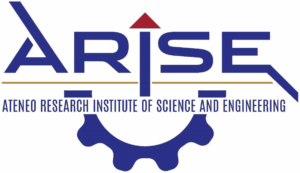
Department of Mathematics
A geometric polyhedron is typically described as a three-dimensional solid of finite volume bounded by flat regions called its facets. Well known examples of geometric polyhedra include the five Platonic solids, which have been studied since antiquity, and their various truncations and stellations. Because of their mathematical and aesthetic appeal, geometric polyhedra are widely used as models in various fields of science and the arts. In the field of crystallography, they have been used in studying the symmetry and structural formation of crystalline materials, nanotubes, and even viruses.
In this work, our main objective is to adapt a method based on Wythoff construction to generate a geometric polyhedron from a given abstract polyhedron satisfying a regularity property. The adapted method builds the figure by applying the image of an orthogonal representation of the automorphism group of to a collection of open sets in space. The method is formulated and stated in a way that is amenable to algorithmic computations and suited to computer-based graphics generation. This work extends and further illustrates the ideas found in the work of Clancy (2005) and concretizes the algebraic version of Wythoff construction found in Chapter 5A of McMullen & Schulte (2002).
To illustrate the use of the method, we apply it to the abstract regular polyhedra whose automorphism groups are isomorphic to the non-crystallographic Coxeter group . The group has order 120 and can be described as the automorphism group of the (abstract) regular icosahedron represented in the standard way. Since it is the group of symmetries of icosahedralstructures, hasplayedafundamentalroleinthestudyofmathematicalmodels of quasicrystals, carbon onions and carbon nanotubes, and viruses.

Published paper
Aranas, J.A.L., Loyola, M.L. Geometric realizations of abstract regular polyhedra with automorphism group. Acta Cryst. A76, (2020), 358 – 368.
